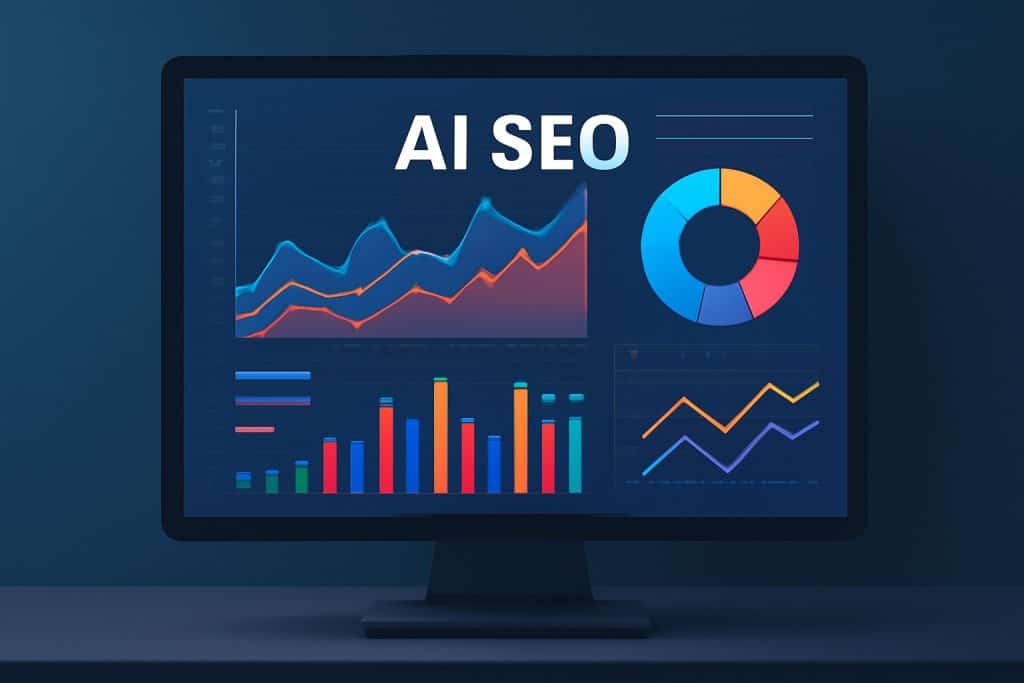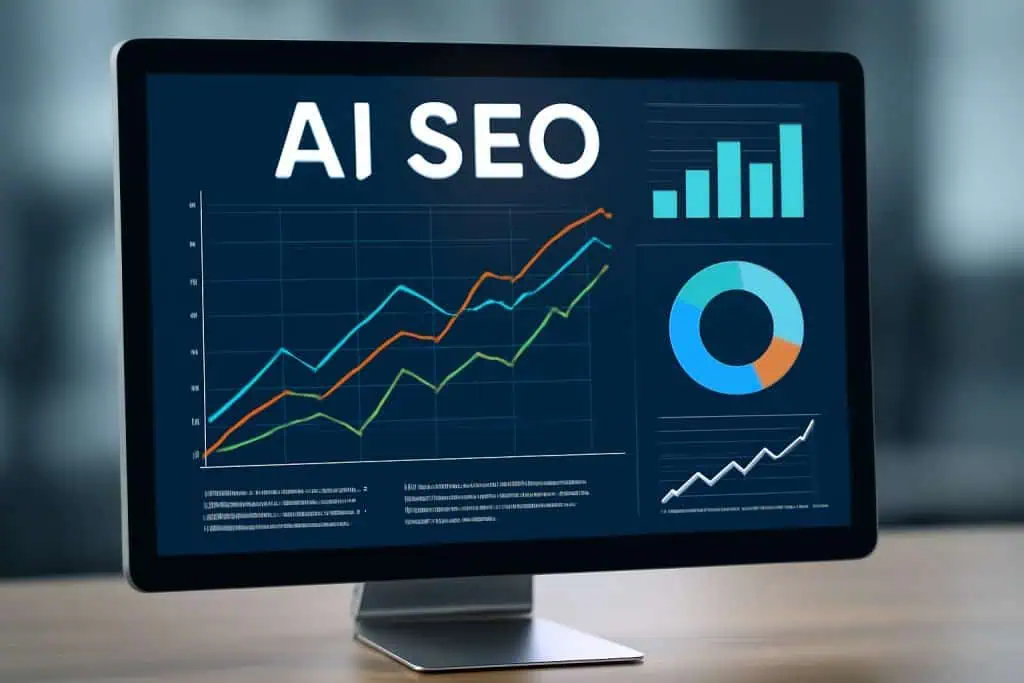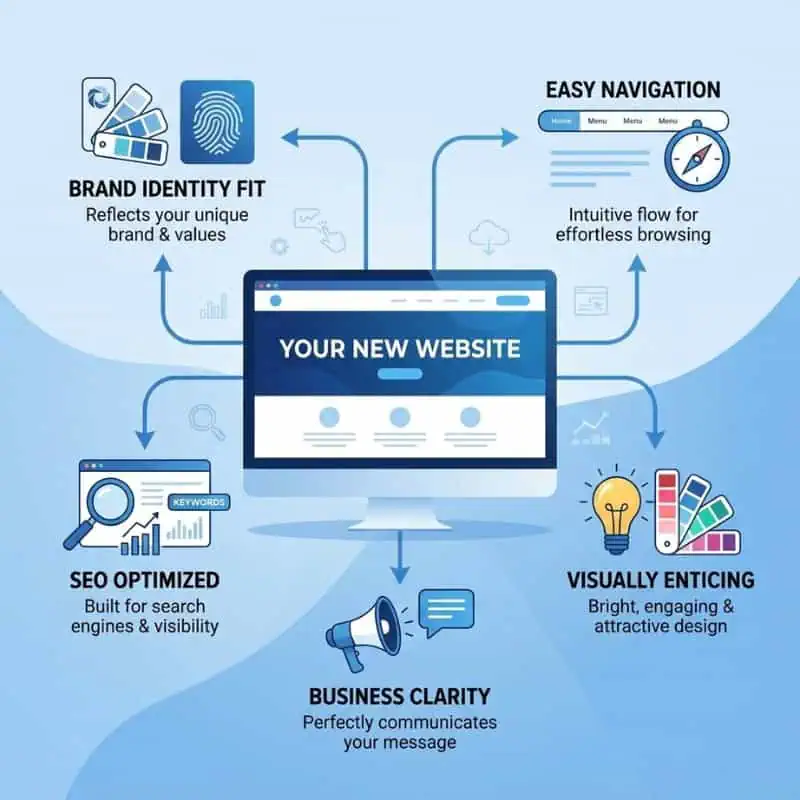- Written by Hozio
- June 23, 2025
- 3 Minute Read
Knowing What Google's Current AI Content Rules Are
In the past year, Google’s views on AI content have changed a lot. They’re not punishing all AI-generated stuff anymore, but they’re definitely looking at it more closely than before. Google cares more about the worth and quality of the material than the tool that made it.
The most important thing now is if your material shows that you are knowledgeable, experienced, authoritative, and trustworthy. AI-generated content that sounds like generic fluff gets pushed down, but AI-assisted content that is useful can still score well. The main difference is how the work is done and how people keep an eye on it.

What Google Really Punishes in AI Content
Google doesn’t have a “AI content detector” that automatically lowers your rankings. Instead, they’re going after certain characteristics that AI material typically shows when it’s not done well. The most affected are mass-produced, weak content that doesn’t bring anything new.
There are clear patterns of making low-quality content that lead to serious penalties. Imagine hundreds of pages that all sound the same, only touch on the surface of topics, or were plainly not looked over by someone who knows what they’re talking about. Google’s algorithms can tell when information doesn’t have the human insight and experience that makes it truly useful.
Another big red flag is anything that goes against known facts or gives bad advise without giving the right sources. AI can sometimes make information that sounds sure of itself but is entirely inaccurate. Google is becoming better at spotting these tendencies. When your content keeps failing fact-checking or giving advise that could lead readers astray, that’s when sanctions start to apply.
The companies that are being punished aren’t simply employing AI; they’re using it to replace human knowledge and editorial oversight completely. They’re putting out information without checking to see if it’s correct, without adding any new ideas, and without thinking about whether it really helps their audience address real problems.
Looking for ways to improve your customer growth?
How to Use AI and Still Follow the Rules
We see AI as a research aid and a way to make first drafts, not as a way to make polished material. We use technology to get past writer’s block, make outlines, and look up information on themes, but we always have a lot of human input before we publish anything.
The best way to do this is to use AI to do the hard work of doing the first research and organizing it. Then, have professionals in the field add their own ideas, real-life examples, and industry-specific expertise that AI can’t give. This makes material that is both easy to make and useful to readers.
Being open is also very important for keeping compliant. You don’t have to label every piece of AI-assisted content, but being honest about how you do things will make people and search engines trust you more. Readers are more inclined to like information when they know that actual experts have looked it over and made it better.
Setting defined quality requirements for all AI-generated material is the best way to go. This involves evaluating every claim for accuracy, adding new information based on your own experiences, and making sure that the material really addresses the issues your audience is asking. AI should make things go faster, not take the place of your knowledge.

Making Your SEO Strategy More Open and Trustworthy
Trust isn’t only about not getting in trouble; it’s also about developing the kind of authority that makes your content rank higher and get more conversions. When people and search engines can tell that actual professionals wrote your content, everything else gets easier.
We’re going to be more open since it’s giving us an edge over our competitors. Companies who are open about how they use AI and don’t try to disguise it or make fake content are creating closer relationships with their audiences and getting better long-term results.
Things that really work for being open and honest
True transparency is more than just saying that you use AI; it also means showing the knowledge and procedure that went into making your content. Trustworthiness comes from author bios that list relevant experience, citations from reliable sources, and thorough explanations of methods.
One way to do this is to make material that clearly shows human expertise through personal stories, case studies, and industry insights that AI can’t make. People are more likely to trust and share content when they can see that it was made by someone with real experience.
Many successful businesses are likewise honest about how they make their material, but they don’t make it the main point. A simple note about using AI tools for research and making sure that all content is vetted and improved by experts in the field will actually make people trust you more, not less.
The most important thing is to show, not simply tell. Don’t just say you’re an expert; show it by giving clear explanations, making accurate predictions, and coming up with solutions that work. When your content constantly provides value that is clearly based on genuine experience, both readers and search engines take note.
How to Avoid Making Mistakes That Kill Trust
The quickest way to lose trust is to post AI stuff that is clearly not approved. If your material has factual mistakes, generic advice that doesn’t relate to your audience, or pages that say different things, it’s a sign that no one with experience is really in charge of your content strategy.
Over-optimizing AI material for keywords without thinking about how easy it is to read or how useful it is to users is another big trust killer. People leave quickly when your material sounds like it was written for search engines instead of people. Search engines pay attention to these engagement cues.
A lot of businesses also make the error of employing AI to create more content without also making their quality control systems bigger. It may seem like a good idea to publish ten AI-generated articles every week, but if none of them offer anything new or show real knowledge, you’re actually hurting your long-term SEO performance.
The worst thing you can do is use AI as a way to avoid learning more about your industry. Companies that employ AI to write on things they don’t know about without doing the right research or getting expert feedback sometimes wind up releasing content that is not just useless but also possibly wrong. This method might get you more visitors in the near run, but it will always cause trust and ranking problems later on.
How to Use AI to Help Your SEO Strategy Work for a Long Time
When it comes to AI in SEO, it’s not about choosing between efficiency and ethics. It’s about employing these technologies wisely to make better content faster. Companies who see AI as a way to improve human skills, not replace them, are the ones that are doing well in this new world.
To be successful, you need to create systems that harness AI’s benefits while keeping the human insight and oversight that Google and consumers really want. This means that research will go faster, things will be more organized, and publishing will be more consistent. However, the final output will always be guided by actual knowledge.
We can help you create a long-lasting, open approach that really works if you’re willing to use AI in your SEO plan without risking penalties or lowering quality.





